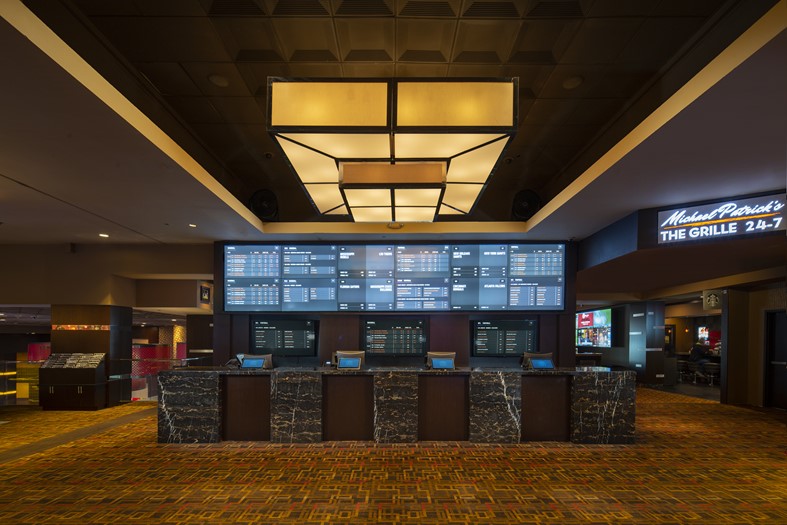Sportsbook Definition
- Sports Betting Terms And Phrases
- Sportsbook Definition Meaning
- Sportsbook Definition Government
- Sportsbook Array Definition
Sports betting

Sports Betting Terms And Phrases

Sportsbook Definition Meaning
Sports Betting Terms and Definitions. Like any hobby, sports betting has a massive library of jargon and terms that new bettors may not know. If you’re a novice sportsbook customer, reading through this list of the most commonly-used sports betting terms, along with their dictionary definitions, will help you ease your way into the world of gambling on sporting events. In sports betting this is the most accurate point spread or moneyline. Wire-to-Wire – This is a wager that a team will lead at every quarter or for a specific number of quarters. Wire-to-wire bets are the most popular in basketball. Sportsbook: A free standing shop, or in dedicated space at land based casinos, sportsbooks have become popular meeting spots for bettors and sports fans alike. Sportsbooks accept bets on US events.
Sportsbook Definition Government
Sports betting is the activity of predicting sports results and placing a wager on the outcome. The frequency of sports bet upon varies by culture, with the vast majority of bets being placed on association football, American football, basketball, baseball, hockey, track cycling, auto racing, mixed martial arts, and boxing at both the amateur and professional levels. Sports betting can also extend to non-athletic events, such as reality show contests and political elections, and non-human contests such as horse racing, greyhound racing, and illegal, underground cockfighting. It is not uncommon for sports betting websites to offer wagers for entertainment events such as the Grammys, the Oscars, and the Emmy Awards. Sports bettors place their wagers either legally, through a bookmaker/sportsbook, or illegally through privately run enterprises. The term 'book' is a reference to the books used by wagebrokers to track wagers, payouts, and debts. Many legal sportsbooks are found online, operated over the Internet from jurisdictions separate from the clients they serve, usually to get around various gambling laws (such as the Unlawful Internet Gambling Enforcement Act of 2006 in the United States) in select markets, such as Las Vegas, Nevada, or on gambling cruises through self-serve kiosks. They take bets 'up-front', meaning the bettor must pay the sportsbook before placing the bet. Illegal bookies, due to the nature of their business, can operate anywhere but only require money from losing bettors and don't require the wagered money up front, creating the possibility of debt to the bookie from the bettor. This creates a number of other criminal elements, thus furthering their illegality.Sports betting has resulted in a number of scandals in sport, affecting the integrity of sports events through various acts including point shaving (players affecting the score by missing shots), spot-fixing (a player action is fixed), bad calls from officials at key moments, and overall match fixing (the overall result of the event is fixed). Examples include the 1919 World Series, the alleged (and later admitted) illegal gambling of former MLB player Pete Rose, and former NBA referee Tim Donaghy. One of the biggest scandals of all involves the 2002 NBA Championship games. Tim Donaghy was allegedly gambling on the spreads for the games that he refereed. After his trial, Tim Donaghy went on to release a statement to the public saying how one of the most controversial games in NBA history, Game six of the 2002 NBA Western Conference finals, was rigged.
Sportsbook
Sportsbook Array Definition
In the United States a sportsbook or a race and sports book is a place where a gambler can wager on various sports competitions, including golf, football, basketball, baseball, hockey, soccer, horse racing, boxing, and mixed martial arts. The method of betting varies with the sport and the type of game. In the US, the Professional and Amateur Sports Protection Act of 1992 allows only Nevada, Oregon, Montana, and Delaware to legally wager on sports.Winning bets are paid when the event finishes, or if not finished, when played long enough to become official; otherwise all bets are returned. This policy can cause some confusion since there can be a difference between what the sportsbook considers official and what the sports league consider official. Customers should carefully read the sportsbook rules before placing their bets.The betting volume at sportsbooks varies throughout the year. Bettors have more interest in certain types of sports and increase the money wagered when those sports are in season. Major sporting events that don't follow a specific schedule, like boxing, can create peaks of activity for the sportsbooks.